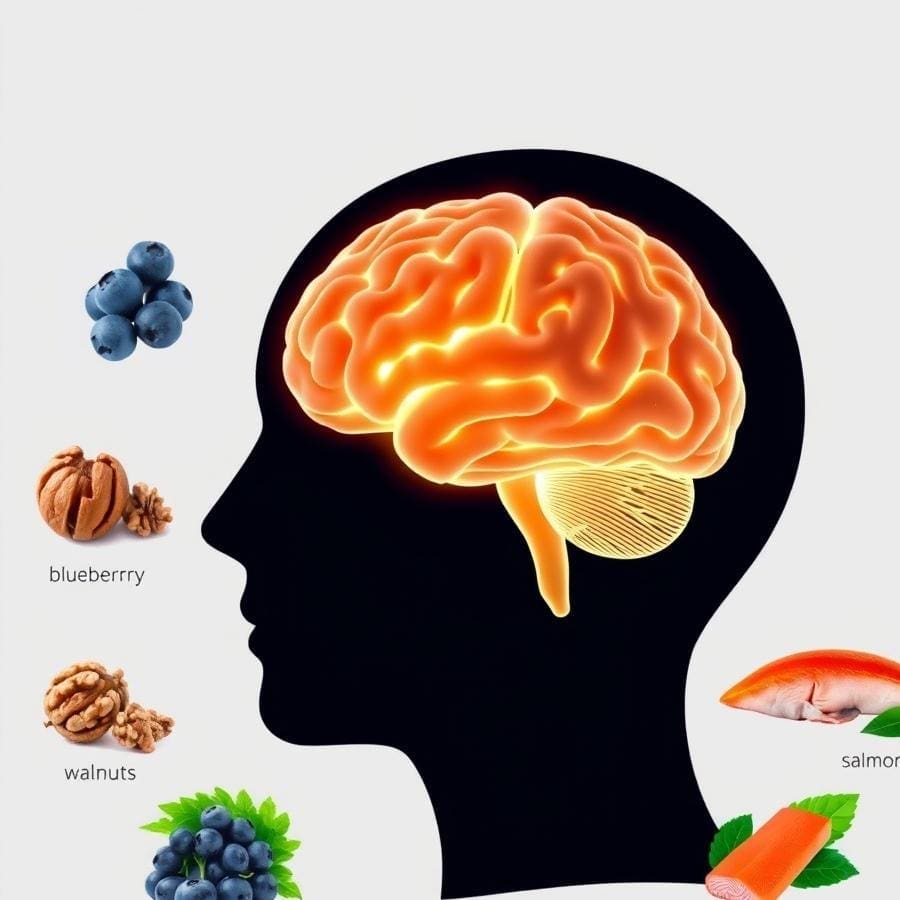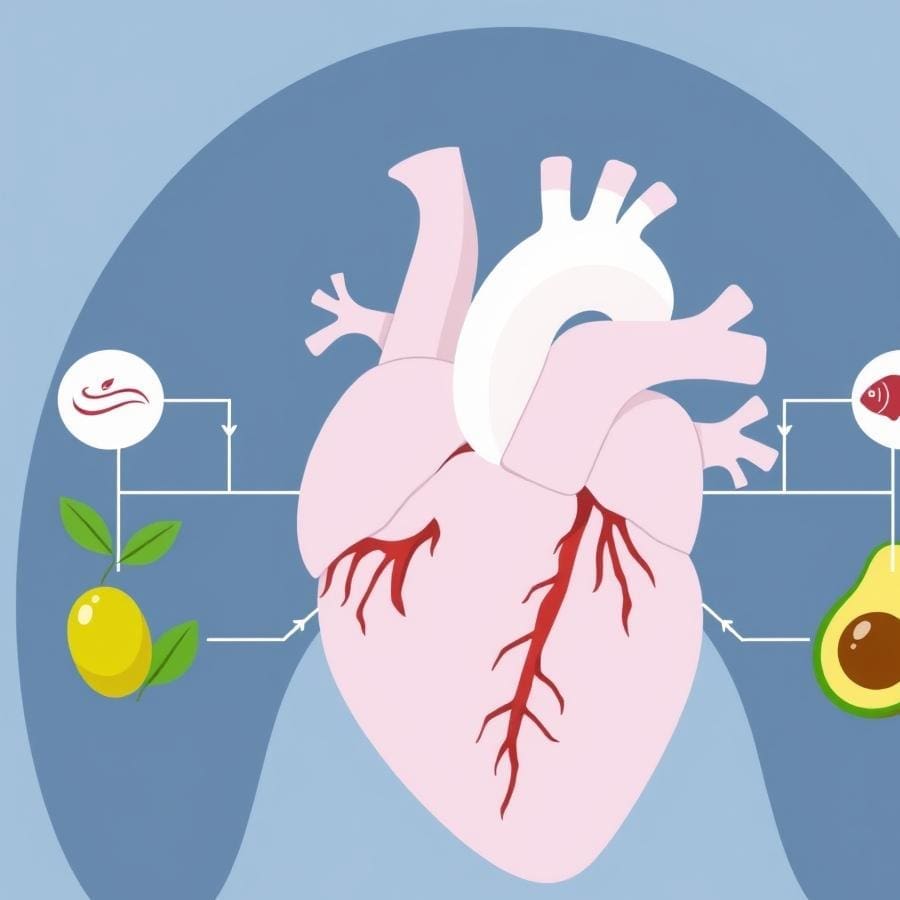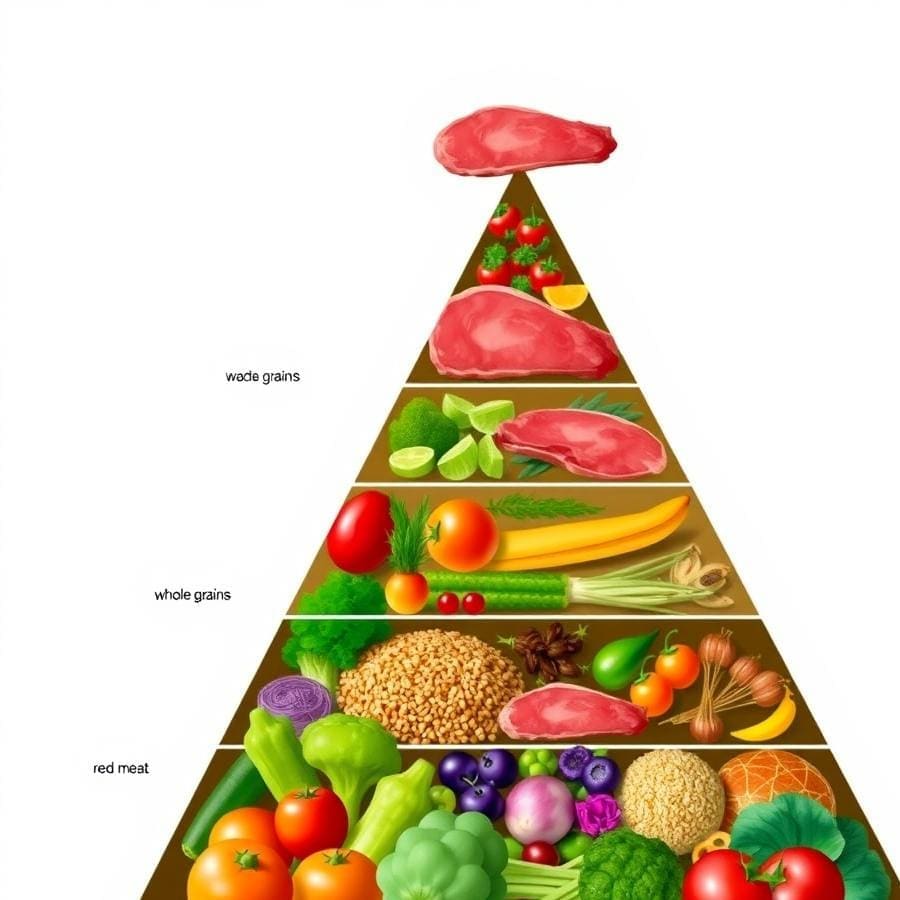The Mediterranean Diet: A Science-Backed Blueprint for Health and Longevity

For decades, researchers have observed that people living in the Mediterranean region enjoy some of the longest, healthiest lives in the world. Their secret isn’t a miracle pill, but a diet rich in fruits, vegetables, whole grains, and healthy fats.
The Mediterranean diet is consistently ranked as one of the best diets by health professionals, according to the Harvard T.H. Chan School of Public Health, not for its restrictions, but for its flexibility, flavor, and extensive, science-backed benefits. In this guide, we will delve into the core principles of this powerful eating pattern, explore its profound impact on heart and brain health, and provide practical steps to help you adopt this life-changing approach to food.
What is the Mediterranean Diet?

The Mediterranean diet is less of a strict set of rules and more of a flexible eating framework. Its foundation is built on plant-based foods.
Daily intake includes an abundance of vegetables, fruits, nuts, seeds, legumes, and whole grains. Extra virgin olive oil is the primary source of fat, replacing butter and margarine.
Fish and seafood are staples, recommended at least twice a week, while poultry, eggs, and dairy (like cheese and yogurt) are consumed in moderation. Red meat is enjoyed only occasionally.
The diet also minimizes processed foods, sugar-sweetened beverages, and refined grains, focusing instead on whole, nutrient-dense ingredients.
Unlocking Superior Heart Health

The most well-documented benefit of the Mediterranean diet is its remarkable effect on cardiovascular health. Landmark research, such as the PREDIMED trial published in The New England Journal of Medicine, has shown that this eating pattern can significantly lower the risk of heart attack, stroke, and death from heart disease.
The high content of monounsaturated fats from olive oil helps lower ‘bad’ LDL cholesterol. Omega-3 fatty acids from fish reduce inflammation and blood pressure.
Furthermore, the abundance of fiber, vitamins, and antioxidants from fruits and vegetables protects blood vessels from oxidative damage, making it a comprehensive strategy for a healthy heart.
A Shield for Your Brain

The benefits of the Mediterranean diet extend from the heart to the brain. The same anti-inflammatory compounds and antioxidants that protect your cardiovascular system also guard your brain cells against damage.
Research has linked adherence to the diet with slower cognitive decline and a reduced risk of developing Alzheimer’s disease. The healthy fats are essential for maintaining the structure and function of brain cells, supporting memory and learning.
By nourishing the brain with these critical nutrients, the diet helps maintain mental sharpness well into old age.
How to Adopt the Mediterranean Lifestyle

Transitioning to a Mediterranean diet doesn’t require a radical, overnight change. Start with these small, manageable steps:
- Make extra virgin olive oil your main cooking fat.
- Aim to fill half your plate with vegetables at lunch and dinner.
- Try one or two meatless meals per week, focusing on beans, lentils, or chickpeas for protein.
- Swap processed snacks for a handful of nuts, a piece of fruit, or even a healthier treat like an easy cashew cheesecake.
- Gradually increase your fish intake.
By making these simple swaps, you can easily integrate the principles of this healthy way of eating into your daily routine. The Mediterranean lifestyle also emphasizes overall well-being, which includes managing stress. Complementing your diet with mindfulness meditation for stress reduction can enhance both mental and physical health.
Conclusion
The Mediterranean diet is far more than a passing trend; it’s a time-tested, delicious, and sustainable approach to long-term health. By focusing on an abundance of fresh, whole foods rather than strict deprivation, it offers a blueprint for reducing the risk of chronic disease, protecting cognitive function, and enhancing overall vitality.
Embracing this way of eating is an investment in your well-being, proving that the path to a healthier life can be both enjoyable and deeply satisfying.

Your article helped me a lot, is there any more related content? Thanks!